By Marc Fisher, Washington Post
As statues tumble and a frightening virus spreads through the land, far fewer splashes of color will burst onto the night skies across America on the Fourth of July. Instead of parades and picnics, the nation’s 244th birthday will be a muted celebration by people who are frustrated and strained, yet intriguingly, persistently hopeful about the future.
A triple whammy of deadly disease, wholesale economic paralysis and a searing reckoning with racial inequality has largely canceled the nation’s birthday bash. But despite depression-level unemployment and pervasive sadness, polling and interviews across the country reveal an enduring — even renewed — reservoir of optimism, a sense that despite the coronavirus and perhaps as a result of protests in big cities and small towns alike, the United States can still right itself.
Months of quarantine and the continuing anxiety of life under the threat of an uncontained virus has shrunk social circles, leaving many people lonely or bored. In Clear Lake, Iowa, where there would normally be a parade, a carnival and a grand fireworks display over the water, Rachel Wumkes will instead spend the day in her in-laws’ pontoon with her husband and their five children.
“I feel discombobulated right now because we should be doing everything and instead we’re just kind of doing nothing,” said Wumkes, who works for the town’s chamber of commerce. “There’s so many scary things right now. We’re all kind of melancholy this year, trying to put a smile on our faces.”
Americans’ pride in their country has dropped this year, especially among Republicans, according to the Gallup Poll. National pride declined to its lowest point in two decades of polling, as the portion of Americans saying they are “extremely” or “very proud” of their country fell from 92 percent in 2002, months after the 9/11 terrorist attacks, to 63 percent last month. The number was far lower for nonwhites: 24 percent.
On the Fourth, Chris Chappelear will leave Omaha, where the big parades and fireworks displays were scratched, and head over to Arlington, Neb., his grandparents’ tiny hometown 35 miles away, where the rocket’s red glare will give proof through the night that the flag is still there.
Despite all the country has gone through this year, he believes there remains something to celebrate.
“Everything feels really strained right now,” said Chappelear, who recently completed a term as chairman of the Nebraska Federation of Young Republicans. “But people are trying to make it work, and I think there will be meaningful change. I like the national conversation that the protests started. With social media, too many people only see what their own people think. But as a millennial, I think changing the guard, with new, fresh blood in leadership, would go a long way toward cooling down tempers.”
In the wake of nationwide protests against police violence, Americans have become somewhat more optimistic about the country’s future, though a plurality still say life will be worse for people in the next generations, according to a new Pew Research poll. Though 71 percent of Americans said they feel angry about the state of the country — and 66 percent are fearful — the survey found an uptick in optimism since last fall.
Overall, 25 percent of those polled said life will get better for Americans; among whites, that number held steady at 22 percent, but among blacks, the optimism number jumped from 17 percent last fall to 33 percent this month.
On most Fourths, Greg Carr makes his way to Independence Hall in Philadelphia to hear the annual reading of the Declaration of Independence. He always carries with him the text of Frederick Douglass’s 1852 speech, “What to the Slave is the Fourth of July?”
There’ll be no mass gathering this year, but Carr, chairman of the Afro-American studies department at Howard University in Washington, will nonetheless read the speech, which affirms Douglass’s admiration for the Founding Fathers’ “great principles of political freedom and of natural justice,” but concludes that “This Fourth of July is yours, not mine. You may rejoice, I must mourn.”
This year, Carr feels an unaccustomed “optimism coming from black folks who see the terms of the American myth being renegotiated in the streets.” He said the coronavirus epidemic “has laid bare the structural inequalities in this country, and the deaths from the virus triggered this general strike.”
The protests, Carr said, have been expressions not only of anger and frustration, but also of joy: “There’s dancing, there’s celebration — they’re celebrating victories that are about America and about human rights and the feeling that ‘I feel better outside than I did being stuck inside the house.’ ”
Carr will spend the day reading the speech and attending Zoom conferences critiquing the Fourth of July. His is not a celebration of America — “This is still the white man’s country,” he said — but rather a celebration that Americans are asserting their rights.
“What black people want is to be left alone,” Carr said. “Let us live.”
Figuring out exactly what the Fourth celebrates has been the work of nearly 2½ centuries, and especially in traumatic times, that effort can seem anything but unified.
In 1968, the Fourth arrived in a moment of deep national division. Riots burned through American cities, the assassinations of the Rev. Martin Luther King Jr. and Robert F. Kennedy remained fresh wounds to the national psyche, and 36 percent of Americans — including 48 percent of blacks — told pollsters that the United States was a “sick society.”
In that traumatic year, the Fourth featured demonstrations on the Mall highlighting “the plight of the poor,” and in Philadelphia, protesters opposing the U.S. involvement in Vietnam chanting, “End the war now!”
But in most American towns, the Fourth unfolded as it always had, a cheerful mélange of parades and fireworks, baseball games, fried chicken dinners and flags aflutter in a humid breeze. A Gallup Poll that summer found that most Americans did not consider their country “sick,” arguing that a small number of people were responsible for violence on the streets and that the country was no worse off than it had been in other eras.
That debate has ebbed and flowed for half a century.
“This year’s conflicts are the clash of two different, incompatible visions of America,” said John Fonte, a historian who is director of the Center for American Common Culture at the conservative Hudson Institute. “It’s systemic justice against systemic racism, the America of the American Revolution and the Constitution — the idea that we’ve had an advance of rights for more than two centuries — against the view that America was flawed from the beginning by slavery.
“We are reaching the climax of that debate, and it appears this year that we are moving away from the vision of an American legacy that needs to be transmitted, toward that vision of America as a country that needs to be radically transformed.”
Fonte has watched as statues have fallen and protests have blossomed, not only against Confederate generals and soldiers who were traitors to their country, but also against George Washington, Abraham Lincoln and Ulysses Grant.
The historian plans to celebrate the Fourth, but he has little expectation that Americans will reach any consensus on who we are and what we stand for. Fonte called the rejection of some of the nation’s most honored figures “overreach.”
“Most people in most countries want to love their country,” Fonte said. “They don’t want to think this is a terrible nation that has done terrible things for hundreds of years. But we’re going to have to choose. Something has to give.”
This year, many Americans seem to be leaning toward the protesters’ arguments, with large majorities of whites and nonwhites alike concluding that the killing of George Floyd in Minneapolis police custody reflected broad problems in how police treat black Americans, according to a Washington Post-Schar School poll conducted in June.
That consensus gives Chappelear, the Nebraska Young Republican, hope that “we’ll come through this crisis — battered and bruised and bloody, but we’ll come through it. The country is still divided, but I look at my generation and the attitudes are different: I like the idea of Black Lives Matter, even if not the organization that runs it. With climate change and gay rights, there’s a much larger acceptance among young conservatives, even here in Nebraska, than there is for older generations.”
But deep divisions remain, and the painful and largely unsuccessful struggle to limit the spread of the coronavirus has reflected rifts that stretch back generations. The debate over whether governments should require people to wear masks, for example, is a classic American faceoff between individual liberty and common good.
“It’s just a punch in the gut to see people around the world responding to the virus and we’re sitting here not doing what we know we could do,” said Spence Spencer, who has run the Fourth of July parade in the District’s Palisades neighborhood since 2002. This year’s parade was scrapped, replaced with a virtual parade online.
“We are broken but unbowed,” said Spencer, a former State Department official who runs a nonprofit organization that focuses on enhancing the rule of law in Iraq and other conflict zones. “Our country has taken so much on the chin this year, on so many levels.”
Spencer sees this spring’s protests as “a cause for hope, a reassertion that the American tradition of getting people to act on a matter of social justice is alive and well.” But the country’s handling of the virus is a less hopeful story, he said: “Right now, that’s a major failing. But I know we can turn a corner. That’s a core belief.”
Many Americans blame themselves, or at least each other, for the failure to restrain the spread of the virus as some other countries have.
More than twice as many people say the American public is doing a “bad job” dealing with the outbreak as say the public is doing a good job, according to a Monmouth University poll. Americans give their fellow citizens a worse grade than they give President Trump; 59 percent said the public is doing a “bad job” battling the virus, whereas 54 percent said Trump is handling the outbreak poorly.
Wumkes, the Iowa civic booster, compared the country’s predicament to a trying chapter of her own life. Three years ago, she lost her husband to cancer. She despaired about her future, alone with two small children. Now, remarried and in a blended family with her new husband’s three kids, her children ask, “Why can’t we go to the movies?” and “Why are we always at home?” But Wumkes sees a light she’d have found hard to imagine a few years ago.
“Life is not all rainbows and unicorns,” she said. “I pulled through that time, and we as a country can pull through, too. Maybe that’s a small-town Iowa fantasy, but I’m hopeful we can persevere.”
Despite the nationwide surge of worry and stress since the epidemic hit hard in March, more than 7 in 10 Americans told the Gallup Poll in mid-June that they experienced happiness and enjoyment through much of their day, a bump up in positive feelings since late March.
There’s good feeling aplenty in Medora, in North Dakota’s Badlands, this weekend. The parade is on. The fireworks, too. More than 128,000 Americans have died of covid-19, and 2.7 million nationwide have been diagnosed with the virus that causes the disease, but in this rural town, the 128 residents, augmented in summer by thousands of tourists visiting Theodore Roosevelt National Park, feel distant enough from the brunt of the virus to charge ahead with their celebrations.
Some people will wear masks, and Douglas Ellison keeps hand sanitizer on the counter at the bookstore and inn he runs. Whether people use it is up to them. “I see it as an individual choice,” he said.
His Fourth will be an optimistic one. His inn is mostly full of visitors, and his vision of America remains mostly unblemished by this year’s troubles.
“Out here, the tensions are not as strong as what we see on television,” said Ellison, who also is a former mayor of Medora. “From what I watch, I see almost a mass hysteria, with people pulling down statues left and right, sometimes without even knowing who the person really is. It’s great to have a national conversation, and there’s an underlying benefit to the unrest, so we can be more aware of people who have not had all the benefits of our country. But unfortunately, it often devolves into shouting and recriminations.”
Still, Ellison said, “the country will come together. My bookstore is history-oriented, and history teaches us that we will always continue to evolve. Every generation thinks their time is the worst it’s ever been. No, it’s been worse. All of this has been brewing since long before the president even ran for office. But the boil will simmer down. Time settles emotions. Things have a way of balancing and righting themselves. They always have.”
Marc Fisher, a senior editor, writes about most anything. He has been The Washington Post’s enterprise editor, local columnist and Berlin bureau chief, and he has covered politics, education, pop culture and much else in three decades on the Metro, Style, National and Foreign desks.
. But despite depression-level unemployment and pervasive sadness, polling and interviews across the country reveal an enduring — even renewed — reservoir of optimism, a sense that despite the coronavirus and perhaps as a result of protests in big cities and small towns alike, the United States can still right itself.
Months of quarantine and the continuing anxiety of life under the threat of an uncontained virus has shrunk social circles, leaving many people lonely or bored. In Clear Lake, Iowa, where there would normally be a parade, a carnival and a grand fireworks display over the water, Rachel Wumkes will instead spend the day in her in-laws’ pontoon with her husband and their five children.
“I feel discombobulated right now because we should be doing everything and instead we’re just kind of doing nothing,” said Wumkes, who works for the town’s chamber of commerce. “There’s so many scary things right now. We’re all kind of melancholy this year, trying to put a smile on our faces.”
Americans’ pride in their country has dropped this year, especially among Republicans, according to the Gallup Poll. National pride declined to its lowest point in two decades of polling, as the portion of Americans saying they are “extremely” or “very proud” of their country fell from 92 percent in 2002, months after the 9/11 terrorist attacks, to 63 percent last month. The number was far lower for nonwhites: 24 percent.
On the Fourth, Chris Chappelear will leave Omaha, where the big parades and fireworks displays were scratched, and head over to Arlington, Neb., his grandparents’ tiny hometown 35 miles away, where the rocket’s red glare will give proof through the night that the flag is still there.
Despite all the country has gone through this year, he believes there remains something to celebrate.
“Everything feels really strained right now,” said Chappelear, who recently completed a term as chairman of the Nebraska Federation of Young Republicans. “But people are trying to make it work, and I think there will be meaningful change. I like the national conversation that the protests started. With social media, too many people only see what their own people think. But as a millennial, I think changing the guard, with new, fresh blood in leadership, would go a long way toward cooling down tempers.”
In the wake of nationwide protests against police violence, Americans have become somewhat more optimistic about the country’s future, though a plurality still say life will be worse for people in the next generations, according to a new Pew Research poll. Though 71 percent of Americans said they feel angry about the state of the country — and 66 percent are fearful — the survey found an uptick in optimism since last fall.
Overall, 25 percent of those polled said life will get better for Americans; among whites, that number held steady at 22 percent, but among blacks, the optimism number jumped from 17 percent last fall to 33 percent this month.
On most Fourths, Greg Carr makes his way to Independence Hall in Philadelphia to hear the annual reading of the Declaration of Independence. He always carries with him the text of Frederick Douglass’s 1852 speech, “What to the Slave is the Fourth of July?”
There’ll be no mass gathering this year, but Carr, chairman of the Afro-American studies department at Howard University in Washington, will nonetheless read the speech, which affirms Douglass’s admiration for the Founding Fathers’ “great principles of political freedom and of natural justice,” but concludes that “This Fourth of July is yours, not mine. You may rejoice, I must mourn.”
This year, Carr feels an unaccustomed “optimism coming from black folks who see the terms of the American myth being renegotiated in the streets.” He said the coronavirus epidemic “has laid bare the structural inequalities in this country, and the deaths from the virus triggered this general strike.”
The protests, Carr said, have been expressions not only of anger and frustration, but also of joy: “There’s dancing, there’s celebration — they’re celebrating victories that are about America and about human rights and the feeling that ‘I feel better outside than I did being stuck inside the house.’ ”
Carr will spend the day reading the speech and attending Zoom conferences critiquing the Fourth of July. His is not a celebration of America — “This is still the white man’s country,” he said — but rather a celebration that Americans are asserting their rights.
“What black people want is to be left alone,” Carr said. “Let us live.”
Figuring out exactly what the Fourth celebrates has been the work of nearly 2½ centuries, and especially in traumatic times, that effort can seem anything but unified.
In 1968, the Fourth arrived in a moment of deep national division. Riots burned through American cities, the assassinations of the Rev. Martin Luther King Jr. and Robert F. Kennedy remained fresh wounds to the national psyche, and 36 percent of Americans — including 48 percent of blacks — told pollsters that the United States was a “sick society.”
In that traumatic year, the Fourth featured demonstrations on the Mall highlighting “the plight of the poor,” and in Philadelphia, protesters opposing the U.S. involvement in Vietnam chanting, “End the war now!”
But in most American towns, the Fourth unfolded as it always had, a cheerful mélange of parades and fireworks, baseball games, fried chicken dinners and flags aflutter in a humid breeze. A Gallup Poll that summer found that most Americans did not consider their country “sick,” arguing that a small number of people were responsible for violence on the streets and that the country was no worse off than it had been in other eras.
That debate has ebbed and flowed for half a century.
“This year’s conflicts are the clash of two different, incompatible visions of America,” said John Fonte, a historian who is director of the Center for American Common Culture at the conservative Hudson Institute. “It’s systemic justice against systemic racism, the America of the American Revolution and the Constitution — the idea that we’ve had an advance of rights for more than two centuries — against the view that America was flawed from the beginning by slavery.
“We are reaching the climax of that debate, and it appears this year that we are moving away from the vision of an American legacy that needs to be transmitted, toward that vision of America as a country that needs to be radically transformed.”
Fonte has watched as statues have fallen and protests have blossomed, not only against Confederate generals and soldiers who were traitors to their country, but also against George Washington, Abraham Lincoln and Ulysses Grant.
The historian plans to celebrate the Fourth, but he has little expectation that Americans will reach any consensus on who we are and what we stand for. Fonte called the rejection of some of the nation’s most honored figures “overreach.”
“Most people in most countries want to love their country,” Fonte said. “They don’t want to think this is a terrible nation that has done terrible things for hundreds of years. But we’re going to have to choose. Something has to give.”
This year, many Americans seem to be leaning toward the protesters’ arguments, with large majorities of whites and nonwhites alike concluding that the killing of George Floyd in Minneapolis police custody reflected broad problems in how police treat black Americans, according to a Washington Post-Schar School poll conducted in June.
That consensus gives Chappelear, the Nebraska Young Republican, hope that “we’ll come through this crisis — battered and bruised and bloody, but we’ll come through it. The country is still divided, but I look at my generation and the attitudes are different: I like the idea of Black Lives Matter, even if not the organization that runs it. With climate change and gay rights, there’s a much larger acceptance among young conservatives, even here in Nebraska, than there is for older generations.”
But deep divisions remain, and the painful and largely unsuccessful struggle to limit the spread of the coronavirus has reflected rifts that stretch back generations. The debate over whether governments should require people to wear masks, for example, is a classic American faceoff between individual liberty and common good.
“It’s just a punch in the gut to see people around the world responding to the virus and we’re sitting here not doing what we know we could do,” said Spence Spencer, who has run the Fourth of July parade in the District’s Palisades neighborhood since 2002. This year’s parade was scrapped, replaced with a virtual parade online.
“We are broken but unbowed,” said Spencer, a former State Department official who runs a nonprofit organization that focuses on enhancing the rule of law in Iraq and other conflict zones. “Our country has taken so much on the chin this year, on so many levels.”
Spencer sees this spring’s protests as “a cause for hope, a reassertion that the American tradition of getting people to act on a matter of social justice is alive and well.” But the country’s handling of the virus is a less hopeful story, he said: “Right now, that’s a major failing. But I know we can turn a corner. That’s a core belief.”
Many Americans blame themselves, or at least each other, for the failure to restrain the spread of the virus as some other countries have.
More than twice as many people say the American public is doing a “bad job” dealing with the outbreak as say the public is doing a good job, according to a Monmouth University poll. Americans give their fellow citizens a worse grade than they give President Trump; 59 percent said the public is doing a “bad job” battling the virus, whereas 54 percent said Trump is handling the outbreak poorly.
Wumkes, the Iowa civic booster, compared the country’s predicament to a trying chapter of her own life. Three years ago, she lost her husband to cancer. She despaired about her future, alone with two small children. Now, remarried and in a blended family with her new husband’s three kids, her children ask, “Why can’t we go to the movies?” and “Why are we always at home?” But Wumkes sees a light she’d have found hard to imagine a few years ago.
“Life is not all rainbows and unicorns,” she said. “I pulled through that time, and we as a country can pull through, too. Maybe that’s a small-town Iowa fantasy, but I’m hopeful we can persevere.”
Despite the nationwide surge of worry and stress since the epidemic hit hard in March, more than 7 in 10 Americans told the Gallup Poll in mid-June that they experienced happiness and enjoyment through much of their day, a bump up in positive feelings since late March.
There’s good feeling aplenty in Medora, in North Dakota’s Badlands, this weekend. The parade is on. The fireworks, too. More than 128,000 Americans have died of covid-19, and 2.7 million nationwide have been diagnosed with the virus that causes the disease, but in this rural town, the 128 residents, augmented in summer by thousands of tourists visiting Theodore Roosevelt National Park, feel distant enough from the brunt of the virus to charge ahead with their celebrations.
Some people will wear masks, and Douglas Ellison keeps hand sanitizer on the counter at the bookstore and inn he runs. Whether people use it is up to them. “I see it as an individual choice,” he said.
His Fourth will be an optimistic one. His inn is mostly full of visitors, and his vision of America remains mostly unblemished by this year’s troubles.
“Out here, the tensions are not as strong as what we see on television,” said Ellison, who also is a former mayor of Medora. “From what I watch, I see almost a mass hysteria, with people pulling down statues left and right, sometimes without even knowing who the person really is. It’s great to have a national conversation, and there’s an underlying benefit to the unrest, so we can be more aware of people who have not had all the benefits of our country. But unfortunately, it often devolves into shouting and recriminations.”
Still, Ellison said, “the country will come together. My bookstore is history-oriented, and history teaches us that we will always continue to evolve. Every generation thinks their time is the worst it’s ever been. No, it’s been worse. All of this has been brewing since long before the president even ran for office. But the boil will simmer down. Time settles emotions. Things have a way of balancing and righting themselves. They always have.”
Marc Fisher, a senior editor, writes about most anything. He has been The Washington Post’s enterprise editor, local columnist and Berlin bureau chief, and he has covered politics, education, pop culture and much else in three decades on the Metro, Style, National and Foreign desks.


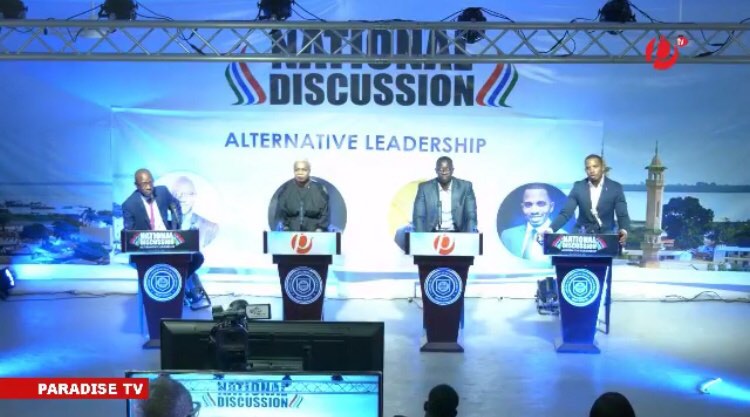


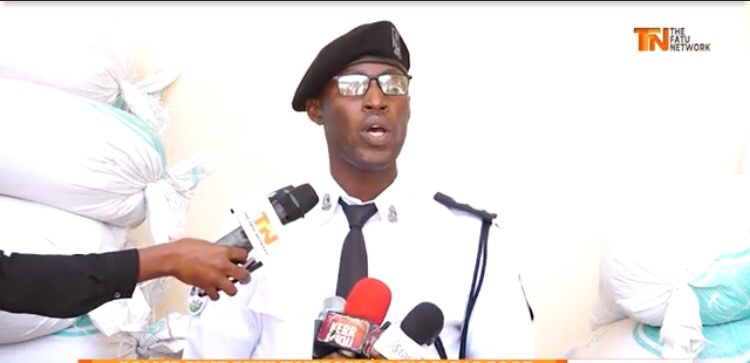
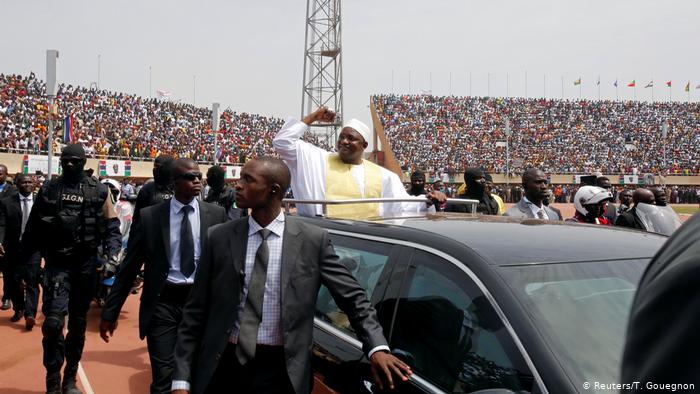
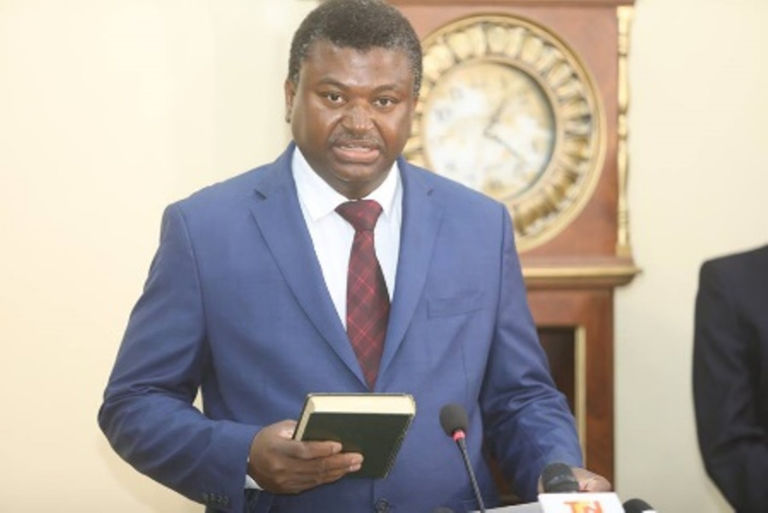
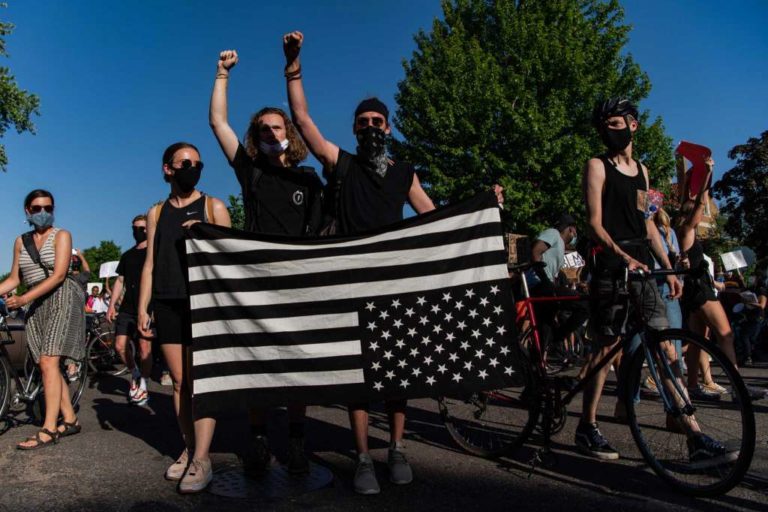
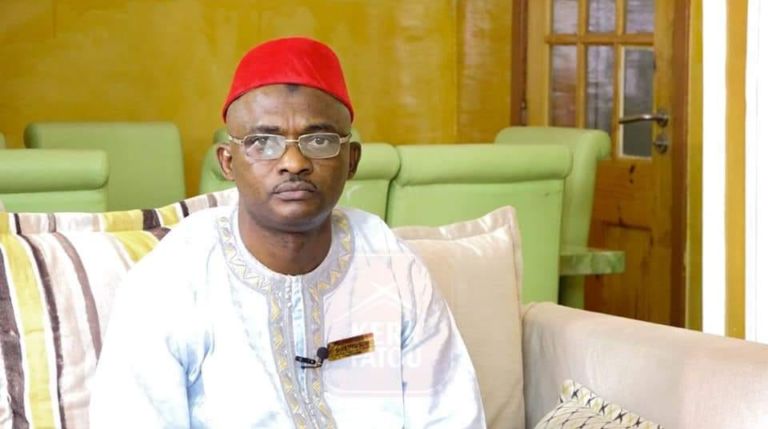

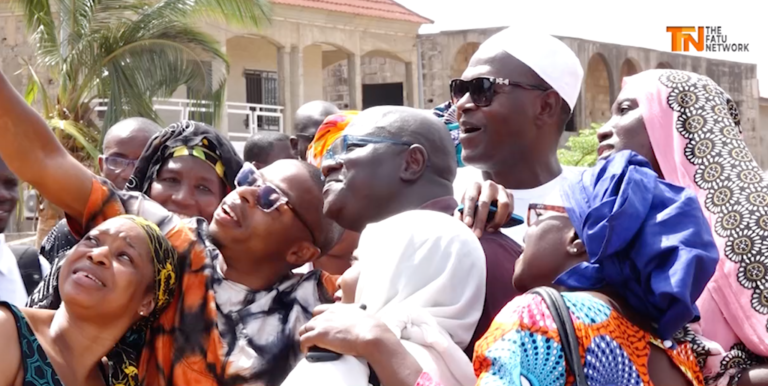
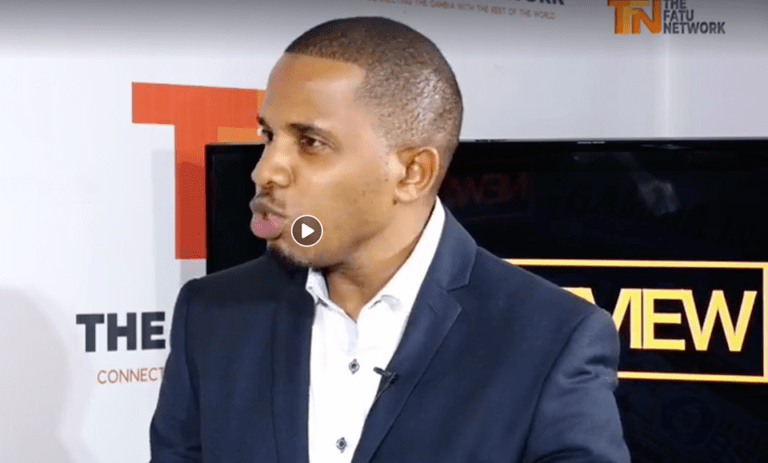
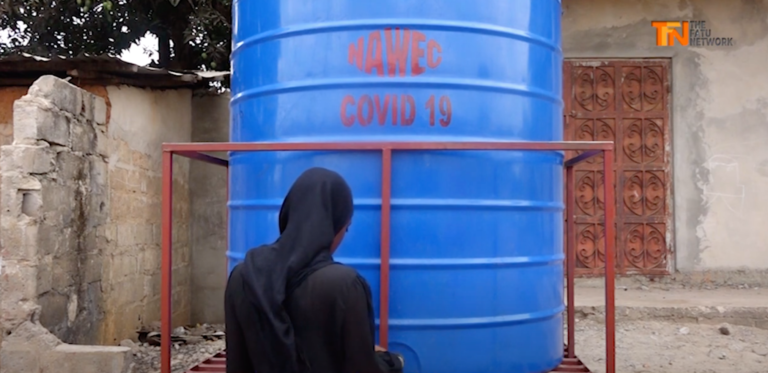


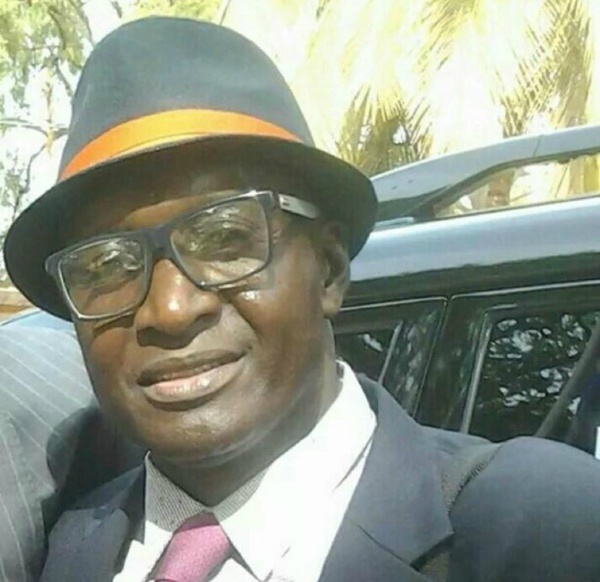
TONY F MENDY – COMMENT: What Mr Madi Jobarteh Represents!
By Tony F Mendy
The assumption of power in the continent since the dawn of independence (with lessons to be best drawn from home) created a new phenomenon of struggle for freedom and justice and even the professed New Gambia is not spared. On the credit side, and maybe rather unconsciously or without a choice, the government of The Gambia has without much effort, laid the environment for freedom of expression which is ironically under review today. The review establishes the debit side of the deliberate attempts to undo the credits so recorded in the name of the same government. Not only is this ironically discordant but inflicts upon the citizenry a sense of betrayal to have “The voice of conscience” in the New Gambia, in the person of Mr. Madi Jobarteh arrested and charged for expressing his opinion in a purely human rights matter.
It is no exaggeration to say that Mr Madi Jobarteh is to some extent either by his noble ideas or consistence conduct, the best thing that happens to the democratization process in the so-called New Gambia. Within us, however, and across the political divide of the polite, we have manifested the ability to hate even men of high intellectual aptitude and integrity regardless of our own fallible nature. So, I will not in this piece in any way whatsoever, address some personal hatred that some people strangely, for whatever reason, have clung on against Mr. Jobarteh, because our conversation as a nation should at all instances be guided by ideas and it is inherent for those who wish to share these ideas to do so without personal sentiments.
It is indeed unprecedented and foolish action for a state, after all it has lost and invested in defense of democracy to, in rather a disgraceful and weak manner (in a case it has already lost before it commence) institute a legal trial against a citizen for expressing an opinion clouded with nought but the truth.
In spite of this manifestation of “dictatorial tendencies” and brick-bat by the Executive, the real problem in The Gambia is the high level of political ignorance or immaturity on one hand and opportunism” on the other. Not strangely enough, the latter which is caused by the failure of the education system has kept the masses of our people in the dark with little or no understanding of the power in their possession neither how to creatively use it. While the former (opportunism) is being practiced by few elites who, for example, understood the position of Mr Jorbateh in our society but chose to be deliberate and continue to tone it down with endless effort to silence noble men like him.
Evident that the majority of our population is kept in ignorance such that, they do not understand the basic dynamics of power and the potentials for the Executive, in such an environment to ‘uncreatively’ abuse it to the detriment of society and its people but for a few, we should not only direct our attention to holding the government accountable but also enlightening the masses of our people to understand the role of the ‘Madi Jobartehs’ in our society.
Mr Jobarteh’s understanding of politics, academic accomplishment, and sophistication in human rights matters and selfless character positions him as an asset to the nation. He is regardless of your opinion, not attracted by the economic or any rewards for his activities because he understands the pathetic graphic picture of our society and is continuously driven by the passion to change it.
He represents the voices of the masses of our people. Mr Jobarteh speaks, demands and questions to hold the powers that be to account not because it is rewarding to him, but he understands the necessity to and dares to represent those who are disadvantaged, don’t understand the worth of their voices, and the reason for the poor status of this country or how to change it.
Comparatively, Mr. Jobarteh is the contrast of any government. It is true that ‘all’ authorities (as a matter of generalization) love to cultivate the culture of or maintain the masses in ignorance, because it is politically gratifying for their continuous survival. Mr. Jobarteh doesn’t dwell upon such an exploitative political machinery. While our politicians revel in regal ostentation, monumental corruption and endless evil, Mr. Jobarteh educates and empowers the masses to stand against such ignoble acts. Consequently, one would understand why the state finds every reason to be discomforted by his activities! Evidently, it is his objectives that are right and relevant for the progress of this nation.
The Greek mythologies, have earlier accurately argued in descriptions of the ‘society’, that every society is composed of three idiots of which are the materialistic class or the bourgeoisie, who unjustly acquire wealth and ‘assume’ to isolate themselves from the society and matter that affect it. They do not care nor pay attention to the plight faced by the said society they are living in. So said the Greeks, the second category of idiots is the tribalists’ . Those who, for their weak intellectual capacity and general inability, do appeal to the sentiments and cultural diversity of cosmopolitan societies as a base to win favors from its section. The third class of idiots in this regard are the “citizens”. These are the people with rational thought and deep understanding of their responsibility as members of a society. They look into the greater good, uphold and respect the probity of the human being and contribute towards the general success of the society.
Of course, Mr Jobarteh belongs to the third category of idiots. He is a citizen and understands what it means to be a genuine member of any society. While I cannot realistically peek into his mind or prognosticate the future and see whether he will change or not, I have long comfortably assured myself that he is a noble citizen, a patriot, the type that the young should look up to if we mean change in our lives time and that of our makeshift society.
Mr Jorbateh represents the agenda of the much-needed re- liberation of the Gambian from the bankrupt system of governance and ceaseless exploitation of its people. He understands the cries of the woman gardener in the remotest hamlet of The Gambia who is not even spared from the exploitation. Thus, the continuous demand for genuine leadership. Most amazingly, he does not represent the much pathetic political groupings in this country.
Mr Jobarteh represents a liberated progressive mind and citizen, who values human life regardless of one’s political affiliation, sexual orientation, imaginary tribe or social stratification. He is as far as the embodiment of a genuine “citizen” is concern, one of the finest one could point to in The Gambia.
The past explains how we got here today, so I do not and no one (except those exploiters) should care when Madi’s fallible nature offends the establishment or the laws designed with the exact intent to suppress the voices of the oppressed! Consider it, for example, as the reactionary effects of the half a century troubled souls.
I know, I cannot amply or exhaustively demonstrate the value of Mr. Jobarteh for what he represents and I have no intention to either but the story is told of many a great man, who dared to be different in strange times in societies that are today considered as liberated and progressive. History is kind to them because they possessed the forethought and genuine intention to institute real change. At first, they were misunderstood only to be celebrated by posterity.
Mr Jobarteh has chosen that right path, that of the people’s fighters! So tell Mr Government, you cannot silence the People’s Fighter! He represents just but us! He is us and we are him! Oh yes I am Madi Jobarteh!